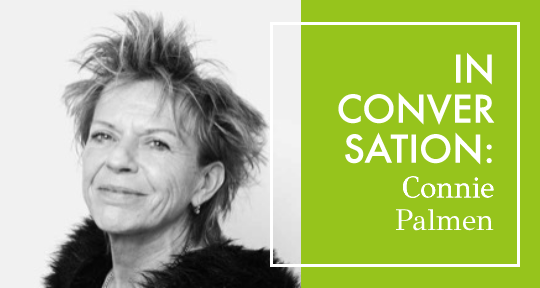There’s something about Sylvia Plath—the brevity of her life, the tragedy of her death, the haunting work she left behind. In the nearly six decades since her passing, she has remained an imposing figure in literary culture, romanticized and politicized and psychoanalyzed to excess. Plath’s relationship with English poet Ted Hughes, whom she married in 1956, has also endured as an object of public fascination. Their partnership was tempestuous—strained by Plath’s mental illness, Hughes’s infidelity, and the demands of the writing life. Yet on the outside, they were two beautiful, talented writers, bound by love and poetry.
Dutch author Connie Palmen’s latest novel, Your Story, My Story, translated by Eileen J. Stevens and Anna Asbury, uses Plath and Hughes’s ill-fated marriage as a vehicle for larger questions about lust, loyalty, and grief. Palmen wrote the novel as she mourned her husband’s death, and explored her pain through the character of Hughes, who narrates the novel while grappling with the death of his own wife. Palmen, Stevens, and Asbury have achieved remarkable success in bringing Hughes’s literary voice to the page; reading Your Story, My Story feels like reading straight from Hughes’s diary. The prose is lovely, the emotions raw. But the novel’s existence also poses interesting ethical questions.
Originally published as Jij zegt het in 2015, Your Story, My Story is written from Hughes’s perspective, Palmen’s intention being “to tell Ted’s side of the story.” As a narrator, Hughes explicitly posits that he has been unfairly vilified in contemporary discourse (“She was the brittle saint, I the brutal traitor,” reads an excerpt on the front flap. “I have remained silent. Until now.”). This is possible. But Plath’s recently discovered letters, in which she makes allegations of assault and abuse against Hughes, tell another story. Jij zegt het was published before these letters were made public; still, what is there to be gained by ventriloquizing the dead?
Between Palmen and I there is a divergence of opinion regarding the ethics of this endeavor. The fictionalized Hughes condemns “the mudslide of apocryphal stories, false witness, gossip, fabrication, and myth” that shaped the couple’s legacy, but Palmen adds to this mudslide by producing a work of fiction that promises to deliver “the truth of [the Plath-Hughes] marriage” and “forever change the way we think about these two literary icons.” Turning a historical figure’s life into fodder for fiction is another form of speculation, but Palmen seems unbothered by the irony. And regardless of Plath’s credible allegations (the veracity of which Palmen doubts), the business of writing a whole novel to vindicate Hughes—who in the book weathers Plath’s erratic outbursts and volatile temperament with saintly patience—feels fraught.
Nevertheless, Your Story, My Story is an engrossing and often elegant novel. Palmen, Stevens, and Asbury replicate Hughes’s writing style with startling authenticity, and Palmen deftly draws out internal conflict in her characters. The premise may be questionable, but the craftsmanship is undeniable. I enjoyed the novel most when I read it as a mesmerizing portrait of an imagined relationship, rather than as an assertion of Hughes’s innocence or a historical corrective, as it seems marketed to be. I recently spoke to Palmen about her writing process, artistic choices, and stance on biographical storytelling.
—Sophia Stewart, Assistant Interviews Editor
Sophia Stewart (SS): Your very first novel De wetten came out in 1991. It went on to be translated and published in twenty-four countries, including the United States, where it was released as The Laws in 1993. Rarely do debut novelists find this kind of immediate international success. Were you surprised at all by the reception of your first novel? How did its success influence your writing and the books you wrote in the years after?
Connie Palmen (CP): It may, and most certainly does, sound arrogant, but I wasn’t overly surprised. I knew I had written a novel that was new and different, and that I wrote about a very twentieth-century coming-of-age of a woman. It has only been a short time since the search for identity has been regarded as not just a male quest, and in my novel this quest is also connected to knowledge, to stories. Women could recognize themselves in their struggle to learn and to find some kind of autonomy, and men would recognize their desire to define the world and the women in it. The novel has its roots in the literature of rebellions, as in the saga of Faust, who sells his soul to the devil to become a great artist. My main character Marie lets herself be defined by the men she meets till she has the courage and independence to tell her own story. A first novel is crucial, because it is an encounter with yourself as a writer. The book is a meeting, it discloses your style, your themes, your thinking, your idiosyncrasies, not just to the readers, but mainly to yourself. Only your first novel does that. From that moment on, you know. READ MORE…

